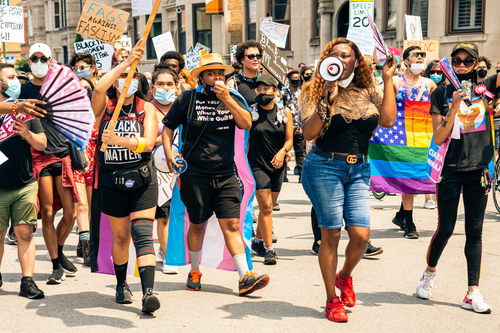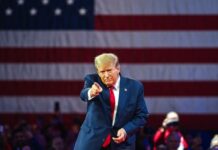
In a significant legal victory for free speech on campuses, a federal appeals court ruled that officials from the University of Louisville could be held personally liable for their decision to fire a professor who publicly questioned gender medicine. The court found that the officials had violated Dr. Allan Josephson’s First Amendment rights when they demoted him for his views on treating childhood gender dysphoria.
Josephson, a long-serving chief of the Division of Child and Adolescent Psychiatry at the University of Louisville, had served without issue until 2017. That year, he participated in a panel at the Heritage Foundation, a conservative think tank in Washington, D.C., where he expressed skepticism about current medical treatments for children experiencing gender confusion. Josephson emphasized that medical professionals should help children navigate developmental challenges rather than immediately turning to drugs and surgery. His comments sparked backlash within his department and the university.
The Florida DMV sent out guidance that driver's licenses should not be reissued for somebody changing their gender marker. It also says anyone misrepresenting their biological sex may be criminally liable for fraud.
This is absolutely spot on and how it should be done:
"The… pic.twitter.com/9YOEa1BOyS
— Expose Them (@ExposeDarkDeeds) January 30, 2024
Following his speech, Josephson faced mounting pressure from university officials, who argued that his conservative views on gender dysphoria could harm the medical school’s reputation and accreditation. His colleagues, including several department heads, accused him of misrepresenting the school’s culture. One official went so far as to suggest that Josephson’s views violated ethical standards for psychiatry. Despite these claims, the court found no evidence that his comments had any negative impact on patient care or the university’s accreditation.
The university ultimately removed Josephson from his leadership role in 2017 and did not renew his contract in 2019. Josephson sued the university and several top officials, arguing that they had retaliated against him for exercising his right to free speech on a matter of public concern. The federal appeals court agreed with Josephson, ruling that the university’s actions were politically motivated and violated his First Amendment rights.
Hate crime & gender lawfare.
This should give Australians a fairly straightforward idea as to how this bill may be used to target conservatives and convict them as ‘criminally liable’ for the new ‘offence’ of having discussions…https://t.co/d8Rh3fWAU3https://t.co/CQchKWwdj8
— AustralianConservative (@AustConserva) September 19, 2024
The court also noted that the university could not prove any harm caused by Josephson’s remarks. In fact, they had no evidence to suggest that his comments interfered with the medical school’s operations beyond creating “disharmony” among colleagues. This ruling could set a precedent for similar cases involving academic freedom and the suppression of conservative views on college campuses.
This case is emblematic of a larger trend across U.S. universities where faculty members have increasingly faced backlash for expressing conservative viewpoints, especially on sensitive issues such as gender identity and critical race theory. Cancel culture has become a pervasive issue in higher education, with more than 130 incidents of cancellations or attempted cancellations recorded in 2023 alone. These incidents, often driven by a vocal minority, have targeted professors, speakers, and even art and literature.
The ruling is part of a broader legal battle over cancel culture in higher education, with courts beginning to push back against institutions that suppress free speech. In a similar case, a federal court struck down penalties imposed on Missouri teachers who objected to mandatory anti-racism training, further reinforcing the protection of conservative speech in public institutions.
The University of Louisville has not commented on whether it will appeal the decision. However, legal experts suggest this ruling could influence ongoing challenges to the Biden administration’s Title IX regulations, which have extended anti-discrimination protections to gender identity. Critics argue these regulations infringe on free speech and academic freedom, as demonstrated in cases like Josephson’s.











